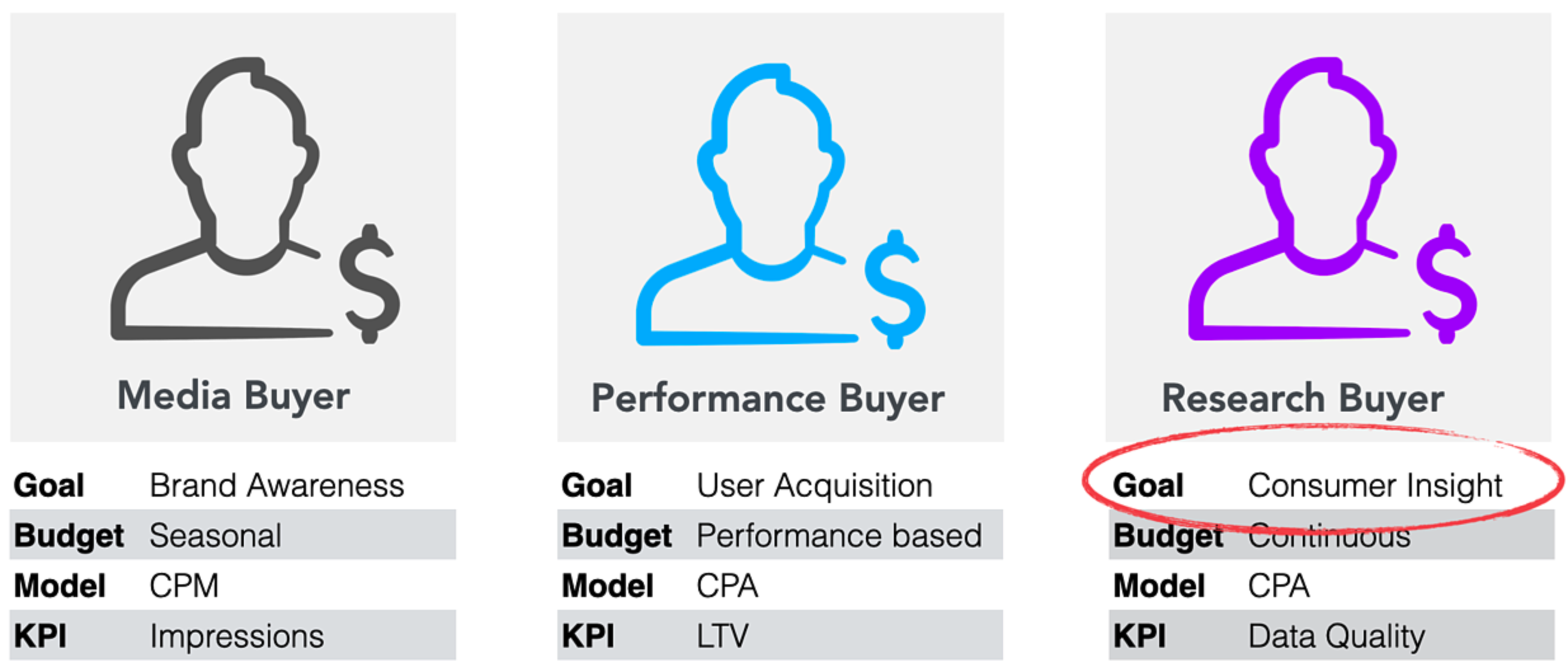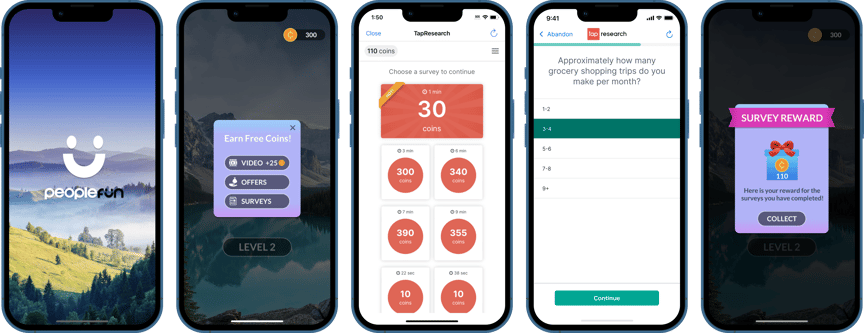Maximizing Game Revenue: The Role of Rewarded Surveys and Offerwalls in Revenue Diversification
Last week, over 28,000 attendees stormed to the streets of San Francisco for the Game Developers Conference (GDC). Despite the wild weather, it was fantastic to witness the conference return in full force after the pandemic.
Game developers shared common feedback, which centered around three themes:
- User acquisition (UA) remains challenging and inefficient. A growth manager we spoke with expressed concern about the current monetization strategies in the gaming industry, as many UA professionals he interacts with are not spending.
- Retention rates are decreasing, making it crucial for companies to focus on improving retention as they tackle the first theme.
- Ad yields are dwindling and show no signs of improving. Almost every game developer we conversed with shared similar concerns about the uncertainty of growth opportunities.
If you can relate to any of these scenarios, consider this post a concise summary of how Market Research Surveys can serve as a viable approach to diversifying your revenue strategy this year.
How big is the Market Research industry?
The global Market Research industry is valued at approximately $76 billion, with an expected compound annual growth rate (CAGR) of around 3.6% from 2021 to 2028. North America accounts for the largest revenue share at 54%, followed by the EU at 23%.
Who are the Market Research buyers?
Buyers of market research come from a diverse range of industries and sectors, as market research helps organizations make informed decisions and develop effective strategies. They utilize market research to better understand consumer preferences, identify market opportunities, validate business ideas, assess marketing effectiveness, and optimize marketing campaigns. Buyers include large brands, SMBs, startups, nonprofits, government agencies, market research firms, and retailers. Any organization that needs to make data-driven decisions or develop effective strategies to reach its target audience can benefit from market research.
The buyers of market research have one major focus, to understand their consumers and improve decision making. Unlike brand and performance advertisers, they are not trying to change the perception or opinion of consumers or acquire new users.

What are Rewarded Surveys?
Rewarded surveys are a type of market research tool where participants receive incentives or rewards for completing surveys. These rewards can be in the form of cash, gift cards, virtual currency, points, or other tangible benefits. The main purpose of rewarded surveys is to encourage participation and increase response rates by providing an incentive for users to share their opinions and feedback.
Companies and market research firms use rewarded surveys to gather valuable insights about customer preferences, opinions, and behaviors. This information helps them make informed decisions about product development, marketing strategies, and other aspects of their business.
How do games monetize with Rewarded Surveys?
Games can monetize with rewarded surveys by integrating them into their in-game economy and user experience. Players are offered the opportunity to complete surveys in exchange for in-game rewards, such as virtual currency, power-ups, or exclusive items. This allows game developers to generate additional revenue while offering an alternative, non-intrusive way for players to earn in-game rewards.
Peoplefun incorporated surveys into their "earn center," providing players with flexibility and choice in earning opportunities tailored to their preferences.

What type of games should consider Rewarded Surveys?
Rewarded surveys can be considered by various types of games that aim to increase user engagement, provide alternative monetization methods, or offer non-intrusive ways for players to earn in-game rewards. Games with strong in-game economies are generally best suited for this format as players can be incentivized with valuable virtual goods that enhance their gameplay experience.
How much revenue can a game make with Rewarded Surveys?
Revenue from rewarded surveys can vary significantly based on several factors, such as the game's user base, player engagement, game economy, and the value of rewards offered.
If you’re interested in understanding how much revenue your app or game can make with TapResearch, our revenue team is available to provide guidance based on your game, economy and audience. Please contact us here.
To maximize the revenue potential of rewarded surveys, game developers should focus on integrating them seamlessly into the user experience, offering meaningful rewards that align with the game's economy, and ensuring a consistent supply of high-quality, relevant surveys. By doing so, developers can create an additional revenue stream while enhancing the gaming experience for players who prefer an alternative method to earn in-game rewards.
Do Rewarded Surveys replace Offerwall?
Rewarded Surveys do not necessarily replace Offerwalls; instead, they can complement Offerwalls as an additional monetization method within a game. Both Rewarded Surveys and Offerwalls provide users with opportunities to earn in-game rewards by completing specific tasks or actions, but they serve different purposes and offer distinct advantages.
Offerwalls typically present users with a variety of offers, such as downloading and trying new apps, watching video ads, or making in-app purchases to receive in-game rewards. Offerwalls are well-suited for promoting other apps and products within the game environment, helping to drive user acquisition and engagement for those products.
Rewarded Surveys focus on gathering user opinions and feedback through market research surveys. Users complete these surveys in exchange for in-game rewards. Rewarded Surveys can provide game developers with valuable insights about their user base while offering players an alternative way to earn rewards without spending real money.
By incorporating both Rewarded Surveys and Offerwalls in a game, developers can diversify their monetization strategies and cater to different user preferences. This approach can help maximize revenue potential and provide a more engaging user experience by offering various options for players to earn in-game rewards.
The Socialpoint team incorporated Rewarded Surveys in addition to Offerwall and Rewarded Video into their games. To learn more about their successful monetization strategy for Dragon City and Monster Legends, explore this success story.
In conclusion, Rewarded Surveys offer an innovative and complementary method of monetization for games, alongside other rewarded formats strategies like Video, and Offerwalls. By integrating rewarded surveys into their games, developers can benefit from valuable insights into player preferences and behaviors while providing players with diverse options for earning in-game rewards. This approach not only helps to enhance user engagement but also contributes to increased revenue potential. As the gaming industry continues to evolve and adapt to new trends, implementing a variety of monetization methods like Rewarded Surveys can be an effective way for developers to stay competitive and cater to the diverse needs of their player base.
If you’re interested in learning more about how rewarded surveys may fit into your game or studio, we’d love to speak with you. Get in touch here.
